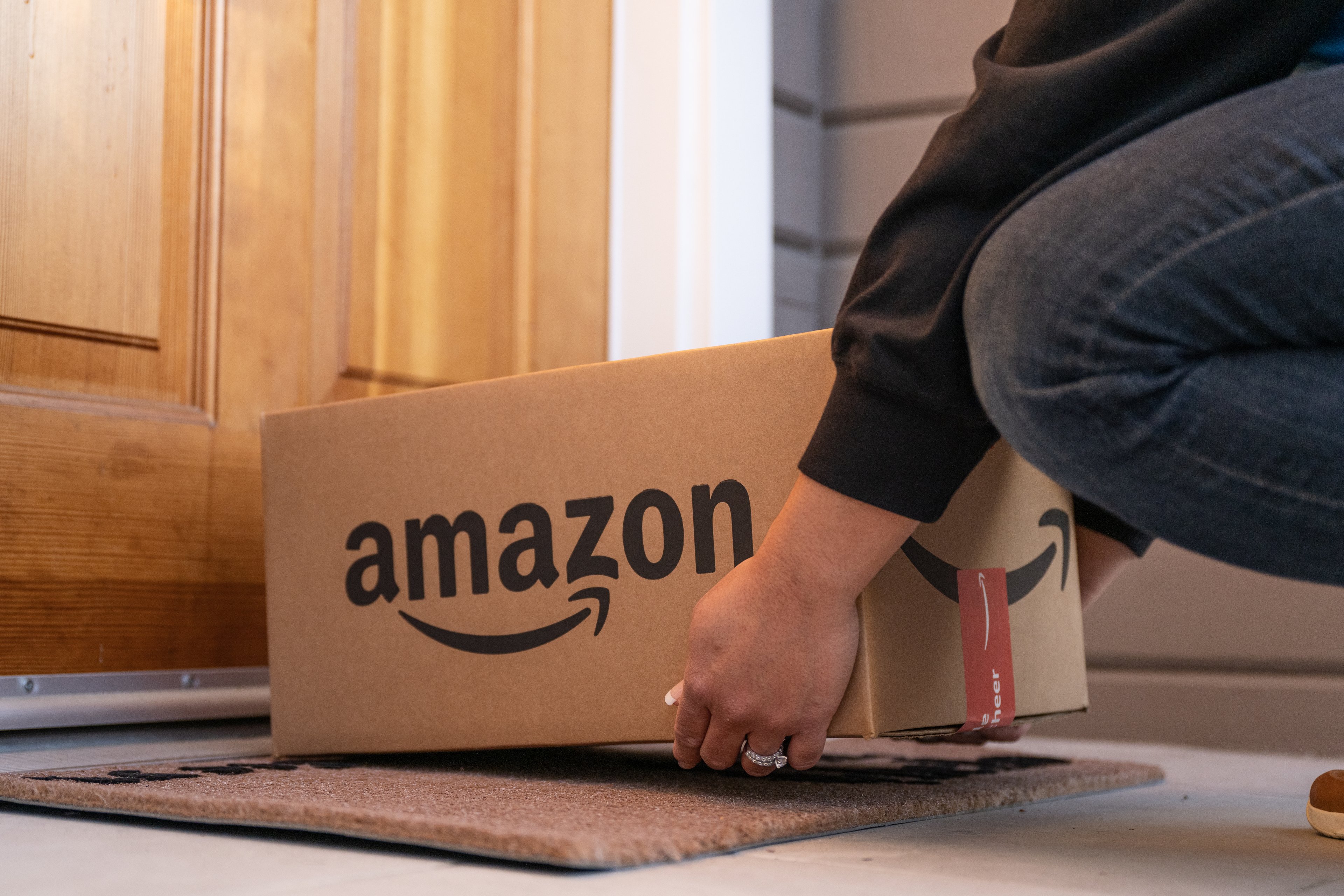Alexa, cloud computing, delivery drones, and more: For all its headline-grabbing innovations, the business model for Amazon.com (AMZN +2.12%) can seem dizzyingly complex. The reality is much different though.
Amazon's core business model is actually fairly simple. In this article, we'll explore how Amazon produces its sales and profits, as well as a few more points about how investors should think about the world's largest e-commerce operator.
Breaking down Amazon's sales and profit drivers
Amazon organizes its reporting structure around two main lines of business: its online retail operations and its Amazon Web Services (AWS) cloud computing platform -- Amazon further divides retail into North America and International sub-segments.
Here's a quick snapshot into how these three key categories have grown for Amazon over the last few years:
| Amazon Sales | 2014 | 2015 | 2016 |
| North America | $50.8 billion | $63.7 billion | $79.7 billion |
| International | $33.5 billion | $35.4 billion | $43.9 billion |
| AWS | $4.6 billion | $7.8 billion | $12.2 billion |
Data Source: Amazon.com 2016 Form 10-K
Amazon remains in high-growth mode across its three main business categories, though AWS is growing at the fastest pace. By then comparing the above chart against Amazon's operating profit per unit one can truly understand how the company works.
| Amazon Operating Income | 2014 | 2015 | 2016 |
| North America | $360 million | $1.4 billion | $2.3 billion |
| International | -$640 million | -$699 million | -$1.2 billion |
| AWS | $458 million | $1.5 billion | $3.1 billion |
Data Source: Amazon.com 2016 Form 10-K
A clear split shines through between Amazon's main sources of sales and operating profits. Its e-commerce platform clearly drives the top line. But AWS produces the bulk of its actual earnings, even as the company has repeatedly slashed prices for its cloud computing products in a bid to capture as much market share as possible.
It's also worth noting that Amazon continues its long-standing practice of running its entire retail business at or near break-even. The underlying narrative for Amazon's retail business is that it's stealing market share from brick-and-mortar retail, a trend that is still in its early stages. The data point I typically cite as part of this argument is the Department of Commerce's figure on e-commerce sales as a percentage of total U.S. retail sales. In the most report, from the final quarter of 2016, e-commerce accounted for just 8.3% of all American retail sales.
Aside from specialty verticals, fierce price competition generally characterizes the retail industry, and Amazon loves to use rock-bottom pricing as a mechanism to gain more market share. It's for this reason that Amazon can be thought of as the "Wal-Mart of the Web."

Image Source: Getty Images
Investing in innovation
To be sure, Amazon's dominant beachheads in e-commerce and cloud computing -- two massive generational growth markets -- are reason enough to invest in the company. However, the fact that Amazon was able to conceive of and grow these two businesses speaks to an even more important underlying ability to invent that should help the company stay ahead of the competition.
Case in point, this section of CEO Jeff Bezos' 2016 letter to shareholders speaks volumes about Amazon's culture:
I believe we are the best place in the world to fail (we have plenty of practice!), and failure and invention are inseparable twins. To invent you have to experiment... Outsized returns often come from betting against conventional wisdom, and conventional wisdom is usually right. Given a ten percent chance of a 100 times payoff, you should take that bet every time. But you're still going to be wrong nine times out of ten... Big winners pay for so many experiments.
Bezos captures this important subtlety perfectly. To be sure, Amazon's massive financial footprint serves as the dollars-and-cents manifestation of his company's ability to take big risks. However, I also think it bears noting that Amazon's true long-term competitive advantage may be that it was designed by Bezos and his executive team to continually take such risks. Just think of the laundry list of products and services that the company pioneered or helped pioneer that looked impossible as recently as a decade prior: Alexa, AWS, and forthcoming efforts like delivery drones are just a handful of examples of Amazon's ability to see around the corner to where business is headed.
To me, this is the crux of why you should own Amazon. It will likely win the global races for e-commerce and cloud computing dominance. It will also continue experimenting with new ideas that should yield new opportunities in the future.






